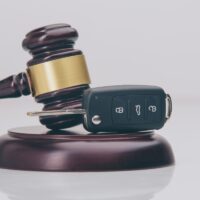Driver’s License Suspension v. Revocation in New York: Definitions and When They Apply

Anyone who has been through driving school has heard the terms “suspension” and “revocation.” Many people use these terms interchangeably when discussing the consequences of DUIs and other driving infractions. The two terms are, however, distinct under the law. They mean different things, and they apply under different circumstances. To understand when driving privileges can be suspended or revoked in New York, keep reading. Call an experienced New York criminal defense lawyer if you have been arrested for DUI or charged with another crime in New York City or the Hudson Valley.
Defining “Suspension” and “Revocation”
“Suspension” and “revocation” both refer to limitations on driving privileges, but they are not the same thing. If your license, permit, or other privilege to drive is “suspended,” it is withdrawn for a limited period of time and will be returned. You might need to pay a suspension termination fee to get your privileges back. Suspension is generally meant to be temporary, although a license can be suspended “indefinitely” until certain conditions are fulfilled (such as payment of DMV fees or satisfaction of a court judgment).
If your driver’s license is “revoked,” on the other hand, then your driving privileges have been completely and totally voided. Your license, permit, or other privilege no longer exists. Although your license has been revoked, the revocation will only be mandatory for a set period–for example, a 6-month revocation for a DWI conviction. In order to get your driving privileges back, you have to re-apply to the Department of Motor Vehicles (DMV) once the revocation period is over. You might face a license reapplication fee. Depending on your driving record and whether you currently satisfy DMV requirements, you may be unable to get a new license.
When Are Driver’s Licenses Suspended or Revoked?
Different driving-related offenses can lead to your license being suspended or revoked. In some cases, one or the other is mandated by law. In other cases, the court can choose to either suspend or revoke based on the circumstances of the defendant and the case. For example, a conviction for the following offenses will result in license suspension:
- Driving While Ability Impaired by a Drug (DWAI-Drug)
- Driving While Ability Impaired by Alcohol (DWAI-Alcohol)
A conviction for the following may result in license revocation:
- Driving While Intoxicated (DWI), or with a blood alcohol concentration (BAC) of at least .08%
- A second DWI, 0.08 BAC, or DWAI-Drug conviction within 10 years of a prior violation
- A second DWAI conviction within five years of a prior drug or alcohol violation
- Homicide, assault, or criminal negligence resulting in death from the operation of a motor vehicle
- Multiple speeding or other misdemeanor traffic violations within an 18-month period
- Drug or alcohol-related driving violations for drivers under the age of 21
License revocation can also result from refusing to take a chemical BAC test after a traffic stop or driving-related arrest.
Dedicated Service to Hudson Valley Criminal Defendants
If you have been arrested or charged with a misdemeanor or felony in New York, call Dupée & Monroe, P.C., to get help from a seasoned criminal defense lawyer. From our offices in Goshen, we represent clients charged with all manner of criminal offenses in Orange County and throughout the Hudson Valley.
